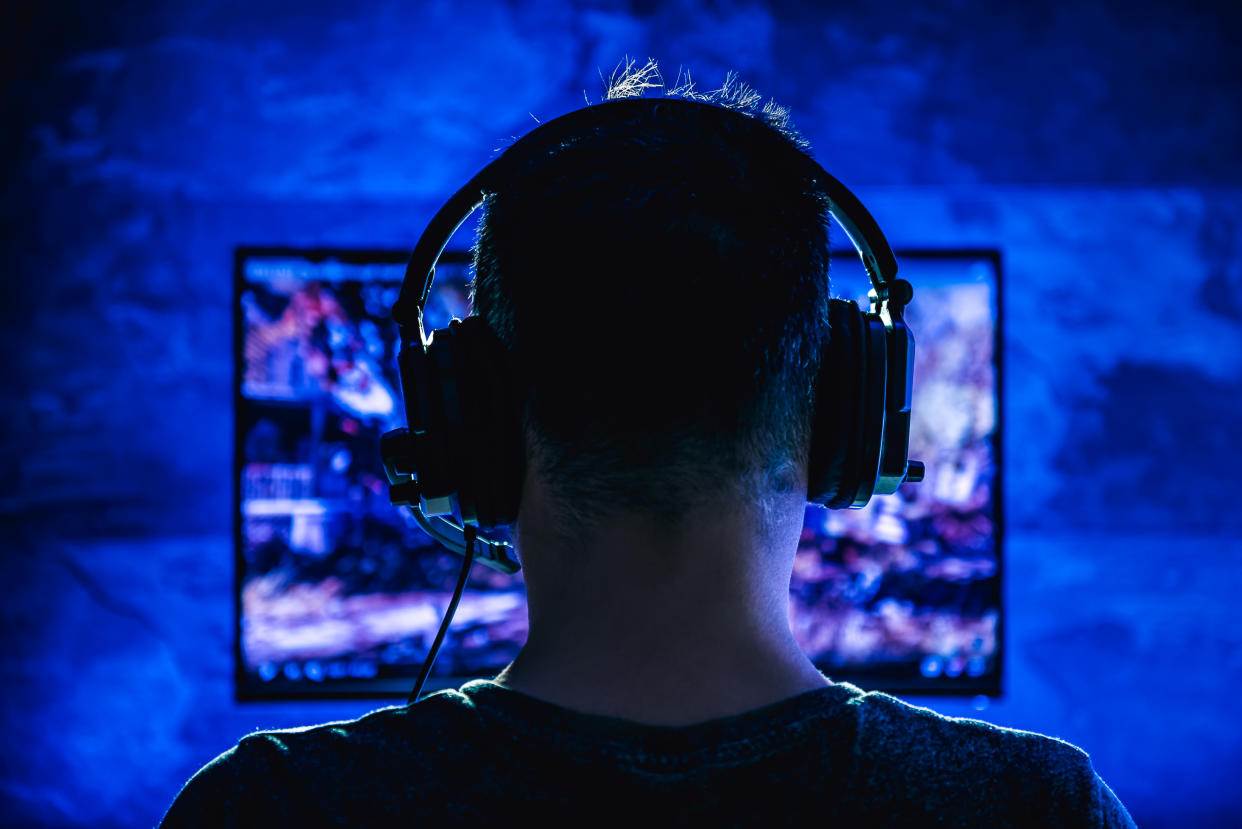When gaming addicts can’t shut down

By Linette Heng
SINGAPORE — J. Koh used to tell his parents that he was studying with friends after school. In reality, the Secondary 3 student was playing multiplayer battle arena game Dota at a LAN shop in Paya Lebar.
His obsession with gaming started after he visited a cyber cafe during the school holidays. Online games soon replaced after school basketball games, and before long, J’s life became completely consumed by them. “We would go to the LAN shop almost every day and go home usually after dinner,” he recalled.
Now 24, the part-time student and retail associate at an electronics shop still spends four to six hours a day playing games on his computer. He estimates that he has spent at least $10,000 on his habit over the years.
Koh’s story is – unfortunately – not unusual. He is one of a growing number of Singaporeans addicted to gaming. While no official statistics are available, market research firm Statistica estimates that Singapore has around 1.1 million online gamers who will spend some US$97 million on video games this year.
Game Over for some
Nearly 90 per cent of the cases seen by the intervention arm of Touch Cyber Wellness, a non-profit charity that advocates the responsible use of digital technologies, involve excessive gaming. In the three years between 2015 and 2018, the number of cases at the charity nearly tripled, from 34 to 90. Gaming is considered excessive when it affects a person’s health, academics or family life.
Earlier this year, a global study by edge cloud services provider Limelight Networks, The State of Online Gaming 2019, found that 51 per cent of Singaporean respondents had foregone sleep, 38.2 per cent had missed a meal, and 31.4 per cent even skipped a shower to keep the game on. The study covered 4,500 gamers from nine countries.
Student Tan Wen Jie is among them. He has given up sleep, meals and lied to his friends about how much time he spends on games. The 22-year-old feels bad “physically and mentally” and has tried to cut down, but keeps “getting sucked in”.
It can get worse, said Shawn Soh, Senior Counsellor, Touch Youth Intervention. “Some youths permanently skip school to stay home and play games… They only take short breaks for quick meals. School and social life are completely neglected.”
This has a tangible impact on health and well-being, says Andrew da Roza, chairman of We Care Community Services and a psychotherapist with addictions clinic Promises Healthcare, who has also noted an increase in gaming addiction cases.
Online games, “with the variety, immediacy, uniqueness, ubiquity, availability, anonymity and low - or no – cost”, are a powerful draw, he said, but too much Internet activity leads to isolation. “It is this lack of personal connectivity and human intimacy that drives further stress, dysphoria (unease), anhedonia (inability to feel pleasure), anxiety, fear, depression, and less positive and healthy behaviour”.
In May, the World Health Organisation added gaming disorder to the International Classification of Diseases (ICD), which serves as a guide for doctors in diagnosing diseases.
Forced digital detox
In addition to more traditional intervention, avenues of help have emerged for younger addicts, including several school holiday camps offering a “digital detox”.
Since 2010, holiday camp organiser Centaurs has been running a five day-four night adventure camp in Bintan, where participants are not given the Wifi password.
“The parents who seek us out …have concerns about time spent (by their children) on digital devices and being detached from other people and the environment,” said Charli Bromley, director of community and marketing.
Meanwhile, pedagogy outreach initiative, Sprouting Seeds, reports an increase in interest in their “strictly no electronics” Camp Unplugged, despite a lack of marketing.
Amy Ong, 47, sends her boys, seven and nine, to Camp Unplugged to keep them away from their iPads during the holidays. “We cannot run away from gadgets these days especially since some of their school’s learning platforms are online. It is even more difficult during the holidays because they have nothing to do.”
Other Singapore stories
PM Lee 8th most admired man by Singaporeans, Halimah 11th most admired woman: survey
'You must give yourself a second chance': former convict turned NTU graduate
At least 8 PMD-related fires in flats reported in recent months


